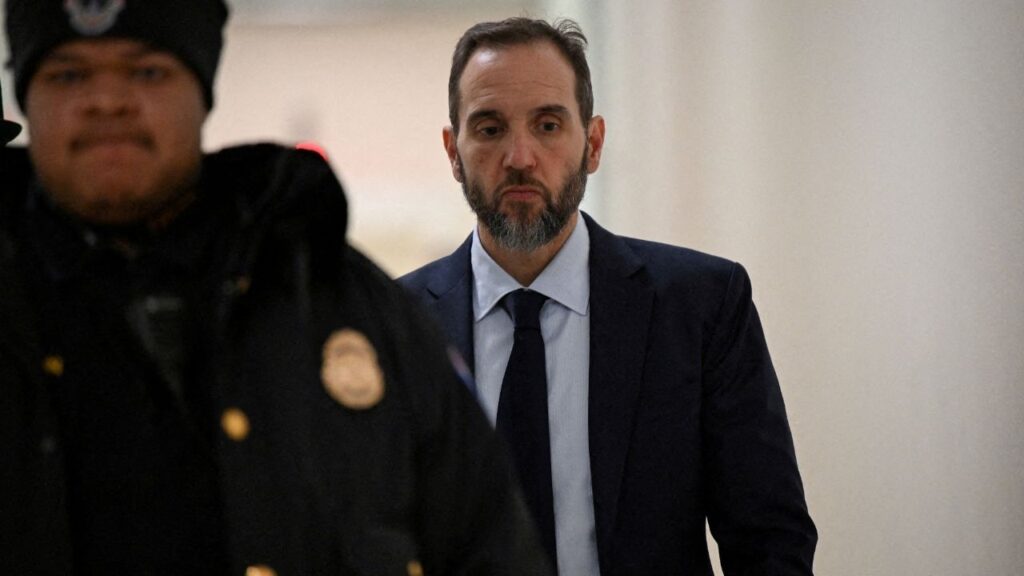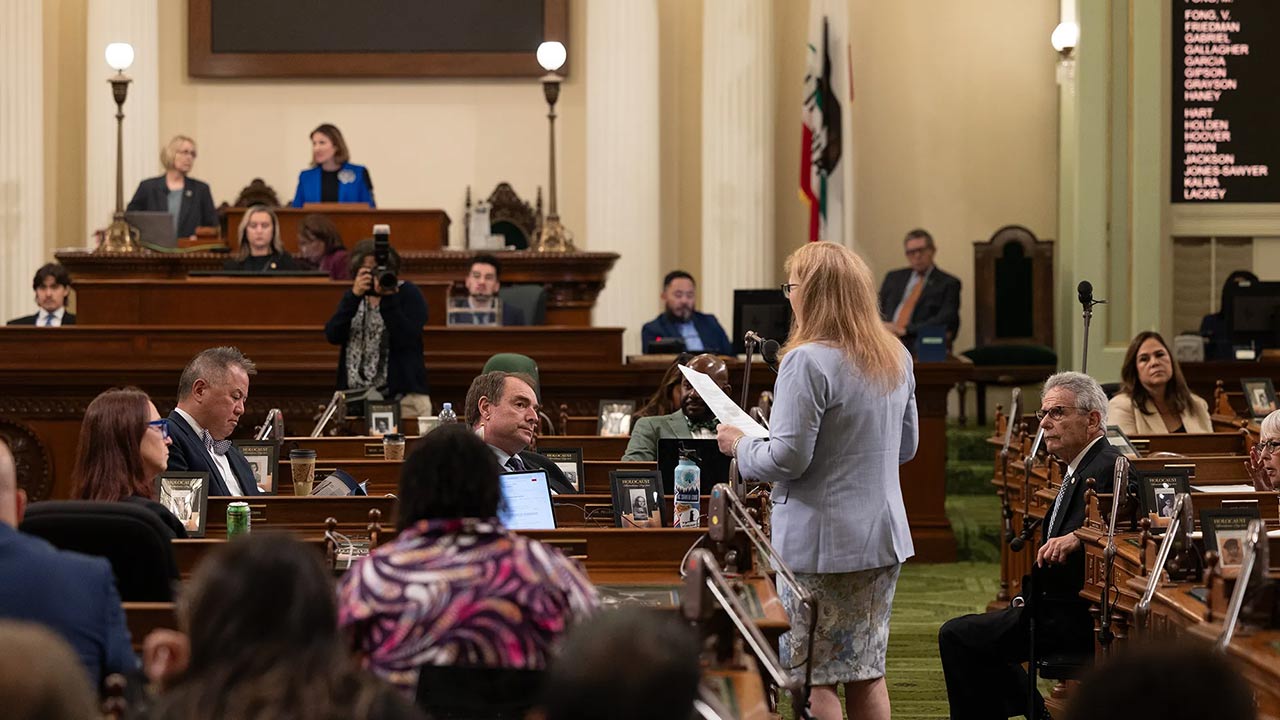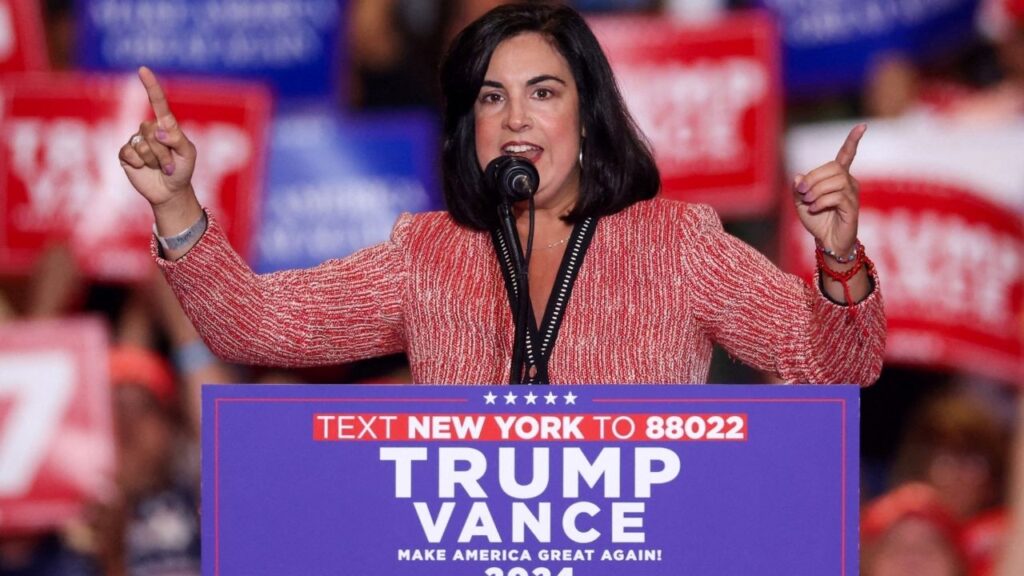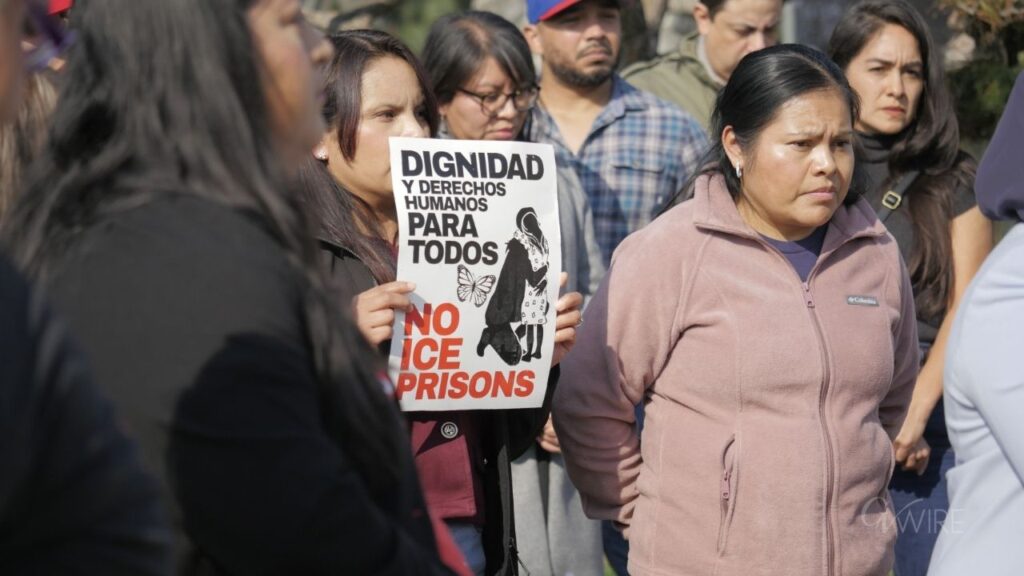A 2022 law limits campaign contributions to $250 to local elected officials from a donor with a license, building permit or other proceeding before the officials. Now there’s a bill to raise the limit to $1,000 and loosen other restrictions. (CalMatters/Miguel Gutierrez Jr.)

- In 2022, California passed a groundbreaking law aimed at curbing the influence of campaign contributions on local politics.
- Just two years later, some legislators, including Sen. Bill Dodd, are pushing for amendments to the very law they once supported.
- Sen. Dodd's proposed amendments, embodied in Senate Bill 1243, have sparked intense debate and opposition.
Share
|
Getting your Trinity Audio player ready...
|
Described by its author as the “most significant political reform” in decades, a 2022 law designed to limit businesses’ and contractors’ attempts to sway local elected officials with campaign contributions cleared the California Legislature without a single “no” vote.

Yue Stella Yu
CalMatters
Two years later, some of the same legislators who backed the measure want to water it down — and they have the backing of developers and labor unions.
Sen. Bill Dodd, a Napa Democrat, is championing a bill to loosen restrictions on how much — and when — local elected officials can accept in campaign cash from interest groups who would benefit financially from those officials’ pending decisions. The bill would also exempt certain industries — such as some labor unions and housing developers — from those restrictions to prevent “pay to play.”
“It has become very apparent that there are problems,” Dodd said of the existing law. “The law essentially freezes out a sector of the community from donating anything directly to candidates.”
Senate Bill 1243 cleared the Senate Elections Committee 4-1 on Tuesday despite concerns from the committee’s chairperson, Sen. Catherine Blakespear, who criticized the bill as “unworkable” and “problematic.”
“I would argue this bill is not worth moving forward. It has too many problems in it,” said the Encinitas Democrat, the lone “no” vote.
Because the bill would change the voter-approved 1974 Political Reform Act, it needs a two-thirds majority in both the Senate and Assembly to reach Gov. Gavin Newsom.
Dodd and other senators who voted for the bill Tuesday also supported the 2022 law. When asked why he voted in favor two years ago, Dodd told CalMatters: “I don’t think anybody really read into the details.” Prompted by a staffer, he then changed his answer: “I don’t think we understood the implications.”
The 2022 law passed after several local “pay-to-play” scandals. Between 2018 and 2020, the city of Huntington Park awarded more than $11 million to contractors who donated money and gifts to city council members, according to KCET. More than 30% of the $125,000 in campaign contributions were made by just eight companies and their executives.
In January 2023, former Los Angeles city council member Jose Huizar pleaded guilty to extorting $1.5 million from real estate developers seeking city approval for downtown projects between 2013 and 2018, the Los Angeles Times reported. Another former Los Angeles city council member, Mark Ridley-Thomas, was sentenced to 42 months in prison last year for routing county contracts to the University of Southern California in exchange for benefits to his son.
The 2022 law was introduced by Sen. Steve Glazer, an Orinda Democrat. “Public trust is greatly enhanced when decision makers maintain their independence from these corrupting influences,” he said in a statement last year.
Related Story: Californians Will See Lower Electricity Rates and a New Fee That Won’t Vary ...
How Does the Law Work?
If you are a builder seeking a city housing permit, under the current law, you and those you hire to lobby the city can only donate a maximum of $250 collectively to a city council member while the project is pending. That restriction will only be lifted 12 months after the final decision is made. If the elected official accepted or solicited money beyond that limit in that 12-month period, they will have 14 days to return the contribution.
If you are a local elected official, before making a decision on the project, you must disclose any contribution made in the past 12 months that was more than $250 and was from the interest groups benefiting from that project. You must also recuse yourself from voting if you’ve accepted such contributions within the 12-month period.
While the law did not spark much debate before it was passed, it led to a lawsuit soon after. In February 2023 — a month after the law took effect — a business coalition including the California Restaurant Association and California Retailers Association and two local officials sued the state’s campaign finance regulator, arguing the law was unconstitutional and violated the freedom of speech rights of officials and donors.
In May, the business groups lost in court. Now, less than a year later, they are turning to state lawmakers instead.

Related Story: California’s Budget Deficit is Likely Growing, Complicating Gov. Gavin ...
Dodd’s bill would raise the $250 threshold to $1,000 and effectively allow a contractor seeking a city contract or permit — as well as the contractor’s hired lobbyists — to each contribute as much as $1,000 within the nine months before and after a final decision is made. Across California, 31 of the 180 cities with self-imposed campaign finance rules have donation limits that are $250 or less, according to an analysis by California Common Cause.
“The idea that our local elected officials can be bought and sold for $250 is both laughable and frankly offensive,” Dodd said during Tuesday’s hearing.
The restrictions would not apply to developers working on certain housing projects mandated by the state, or to labor unions if the decisions solely affect their membership dues, according to a bill analysis.
The bill is supported by both business interests and labor unions, such as the California Building Industry Association and the California Labor Federation.
Nick Cammarota, senior vice president and general counsel for the California Building Industry Association, told lawmakers during the committee meeting Tuesday that “pay-to-play” is not happening among homebuilders in California: “If it were, I’ll put it very crassly: We would buy our permits. We’d have more housing.”
Cammarota argued that the current law makes it difficult for local officials and donors to comply with campaign finance rules.
“It creates a vacuum,” he said. “We are concerned that vacuum will be filled by candidates for local office who are wealthy and have the ability to self-finance their own campaigns.”
Dodd agreed, adding that the low contribution cap may encourage donors to use “dark money” groups — often politically active 501(c)(4) organizations that are not required to disclose their contributors — to mount ad campaigns.
But California Common Cause and California Clean Money Campaign — the main supporters of the 2022 law — argued the bill would favor certain industries, reduce transparency and allow local elected officials to accept large donations outside the 18-month period the bill proposed.
“For many lengthy projects that take longer than nine months, these changes would allow for large contributions to be made while a matter is pending” as long as the check is written outside the window, said Pedro Hernandez, legal and policy director of California Common Cause.
Related Story: California Regulators OK Change of How Power Bills Are Calculated
Jonathan Mehta Stein, executive director of the group, called the bill’s advancement a “ special interest triumph.”
“Our democracy is in dire trouble at the national level. The least we can offer Californians is high-integrity, trustworthy governance here at home,” he said in a statement.
Trent Lange, president of the California Clean Money Campaign, argued the proposed rule would be confusing for donors and local officials, since they sometimes cannot foresee when a final decision is coming.
“You are going to read the council’s mind and when exactly they are going to give a final decision?” he said. “How are people even going to follow that?”
In a text message to CalMatters, Glazer said Dodd’s bill “makes it easier to corrupt local officials and it is wrong.”
“We should be working to elevate trust in government and that doesn’t happen when you reestablish ‘pay to play’ terms in jurisdictions across California,” he said. “Those who say the law isn’t working are referring to the financial players who want to corrupt it.”

Blakespear proposed an amendment last week that would have eliminated the proposed carve-outs for housing and membership groups and defined when a decision is “pending,” according to a copy of her amendment shared with CalMatters.
But Dodd refused to budge Tuesday, instead giving a verbal commitment to work through the concerns, including deleting the exemption for housing developers.
“I think there’s a reality to me being a brand new chair and him being in the Legislature for 10 years with relationships with other people on the committee that are long standing and deep,” Blakespear said of the Tuesday vote.
Blakespear said she recognizes the need to balance campaign finance reform and the ability for people to participate in politics through donations. But, she said, “nobody articulated a good reason” for the carve-outs. The interest groups are backing the bill because “they want to be able to donate more money,” she added.
If the current version of the bill becomes law, she predicted that “next year there’s going to be a bill from the cannabis industry, and then there’s going to be a carve-out for some other interest.”
About the Author
Yue Stella Yu covers politics for CalMatters, with a particular focus on campaigns, elections and voters.
After arriving in California in October 2023, she dove into the state’s once-in-30-years U.S. Senate primary, a fierce contest to replace the late Sen. Dianne Feinstein. Stella helped write CalMatters’ 2024 March primary Voter Guide, dug deep into Senate candidates’ voting records and policy positions, covered three televised debates and examined their pledges against corporate PAC money. She also reported on issues affecting Latino voters’ turnout across California.
Stella will be a lead reporter covering the November election, including the U.S. Senate race, congressional contests and key statewide issues.
Before joining CalMatters, Stella covered state and local politics in Michigan, Tennessee and Mississippi while dabbing in investigative stories. In 2023, her reporting revealed the highly unregulated housing conditions for Michigan dairy farm workers and the lack of state actions to protect workers. She won first place in investigative reporting in press association contests in Tennessee, Mississippi and Missouri.
She graduated from the University of Missouri with a master’s degree in journalism from the University of Missouri in 2017. She is based in Sacramento.
About CalMatters
CalMatters is a nonprofit, nonpartisan newsroom committed to explaining California policy and politics.
RELATED TOPICS:
Categories

US Prosecutor Smith Tells Congress Trump ‘Willfully’ Broke Laws

US Consumer Spending Increases Solidly in October and November

















